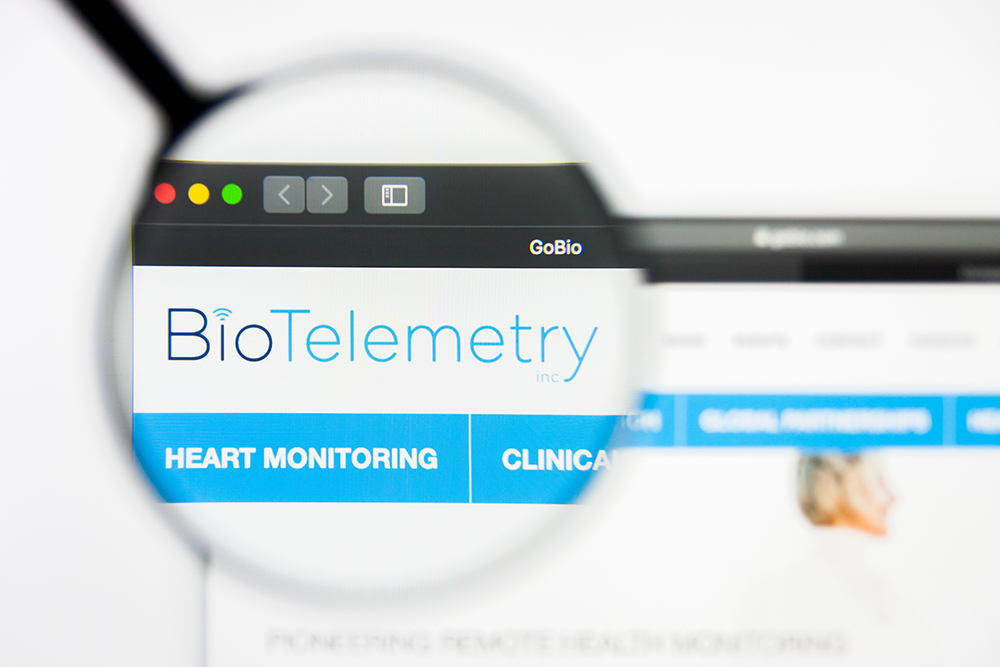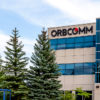Have you ever seen those grainy black-and-white photos of the animals that were sent into space in the late 1950s and early 1960s? These were the pioneers who were hooked up to various remote sensors so that we could keep tabs on their physical conditions as they left the earth’s atmosphere.
That process paved the way for what we today call “remote patient monitoring (RPM).” That’s the practice of using digital technologies to monitor and collect health data from patients and electronically transmit that information to medical professionals.
What’s that got to do with us? Where there’s an expanding technology, there’s money to be made. Contributor Dave Sterman has some ideas.
— Bob Bogda, Editor
P.S. Like what you see? Don’t like what you see? Let me know.

There are so many changes underway with our healthcare system, you need a scorecard to keep track: The Covid-19 pandemic has lit a fire under smaller biotech stocks—since the start of May, the Nasdaq Junior Biotech Index has soared 34%; doctors are now seeing many more patients via remote video links; politicians are debating the future of health insurance; and hospitals have seen a drop in revenue as consumers postpone elective surgeries.
As we head toward the final months of 2020, investors continue to try finding the future winners that will emerge from this disruptive environment. To be sure, firms that are testing vaccines and treatments in clinical trials have been a key focus. Shares of vaccine developer Novavax (NVAX), for example, have surged from under $18 in late April to a recent $111 as a key drug shows promise in clinical trials.
Trouble is, it’s unclear how much of a windfall the leading drug developers will reap. Depending on prices and adoption rates, some vaccines and treatments may not move the needle all that much in coming quarters. The recent share price action for Gilead Sciences (GILD) tells the tale. The company’s remdesivir drug is increasingly being used to treat Covid-19 patients, helping to shorten the duration of illness for many. Yet shares of Gilead are actually lower than when the pandemic began. The firm’s other drugs have not met sales expectations, leading Gilead to miss second-quarter profit forecasts by 23%.
While the investor spotlight remains squarely focused on drug treatments, it is smarter to look down the road to companies that will be long-term beneficiaries from the changes taking place in the delivery of healthcare.
I am talking about firms like Teladoc Health (TDOC), which has seen its shares surge more than 150% this year as more doctors use the firm’s remote video platform to interact with patients.
Indeed, technology now brings the promise of a lot more care being delivered right in someone’s home, blunting the need for regular visits to the doctor’s office or the emergency room. The key for investors is to find a stock that hasn’t yet soared into the stratosphere.
That’s the perfect set-up in place for BioTelemetry, Inc. (BEAT). The Malvern, PA-based firm has emerged as a leader in the field of remote patient monitoring (RPM) devices. Grandview Research says that the RPM market is poised to grow 13.5% per year through 2026, to $1.8 billion.
SPONSORSHIP
[Hot Tech Alert] 32X bigger than 5G?
5G and “AI” are all the rage…
But here’s what you likely don’t know:
The world’s best investors are lining up behind an explosive new technology that could trump them all. Warren Buffett calls it “ingenious.”
With its mobile cardiac outpatient telemetry (MCOT) technology – as well as other products and services – BioTelemetry enables doctors and hospitals to remotely monitor and diagnose a patient’s health. Patients wear specialized chest sensors that monitor any changes in a patient’s heartbeat. Doctors and emergency rooms are notified any time an irregularity is detected. The mobile system reduces the number of visits patients need to make to clinics for tests on high-priced equipment.
If a device detects a dangerous cardiac situation, BioTelemetry’s CardioNet Center will alert a specialist that places phone calls to doctors and the local hospital right away. Those centers also collect daily reports and stats, which a doctor can order at any time.
And MCOT is a real money saver for the healthcare system. Thanks to constant monitoring, serious cardiac problems can be spotted early, saving far costlier interventions that arise once a cardiac patient ends up in a more dire situation.
Here’s a sobering statistic: Nearly half (47%) of all lethal heart attacks in the United States take place before a person even gets to the hospital, according to the American Heart Association.
BioTelemetry is now deploying its knowledge of remote monitoring into other markets. For example, the firm is rolling out a series of devices geared for diabetes patients. According to the Centers for Disease Control (CDC), 34.2 million people in the U.S. have diabetes. Nearly half a million Americans show up in the emergency room each year suffering from either hypoglycemia (severe low blood sugar) or hyperglycemia (severe high blood sugar). Remote monitoring can help patients to be notified if their blood sugar needs to be adjusted long before it’s an emergency.
Still, for the near-term, the cardiac business will remain a core focus for BioTelemetry’s sales staff. The firm got a further sales boost in July when it agreed to re-sell monitoring devices that can spot heart arrhythmias that are made by Boston Scientific (BSX). BioTelemetry thinks the cardiac segment alone could eventually generate $2.5 billion in annual sales. The firm is just getting started as 2021 sales are projected to be about $500 million, or 20% of the total addressable market (TAM).
Despite the bright long-term outlook, shares of BioTelemetry remain nearly 40% below their all-time of $74 high seen back in February 2019. Shares have failed to rally this year due to a dip in doctors’ visits this past spring that blunted sales growth for 2020. “Office visit data showed the biggest dip in April, down as much as 60% in some areas with a gradual recovery throughout the quarter,” said CEO Joseph Capper in a July 30 call with analysts.
Prior to the pandemic, Biotelemetry’s annual sales growth had averaged 32% over the prior three years. Sales will dip this year for the first time since 2012. By next year, however, look for this firm to resume solid double-digit growth rates as remote patient monitoring grows in popularity.
As Brooke O’Neil, an analyst at Lake Street Capital Markets notes, the pandemic “crisis has driven rapid change in the healthcare marketplace, much of which we believe will be permanent. The adoption of telehealth solutions…is experiencing a tremendous surge.” He adds that, “BEAT is fortunate to be in front of this next wave in healthcare evolution.”
Action to Take: Buy shares of BEAT up to $52 and sell when shares reach $70.
SPONSORSHIP
My Next COVID-19 Stock Alert Poised For Triple Digit Moves
Get Ready for my next COVID-19 stock idea.
I have been very fortunate in discovering biotech, therapeutic and diagnostic companies within the COVID-19 space, before wall street catches on. Our goal for our members is to get our Alert’s first before the crowd.
>> Sign Up Now to Get Name & Ticker Symbol of Next Triple-Digit Gainer <<








